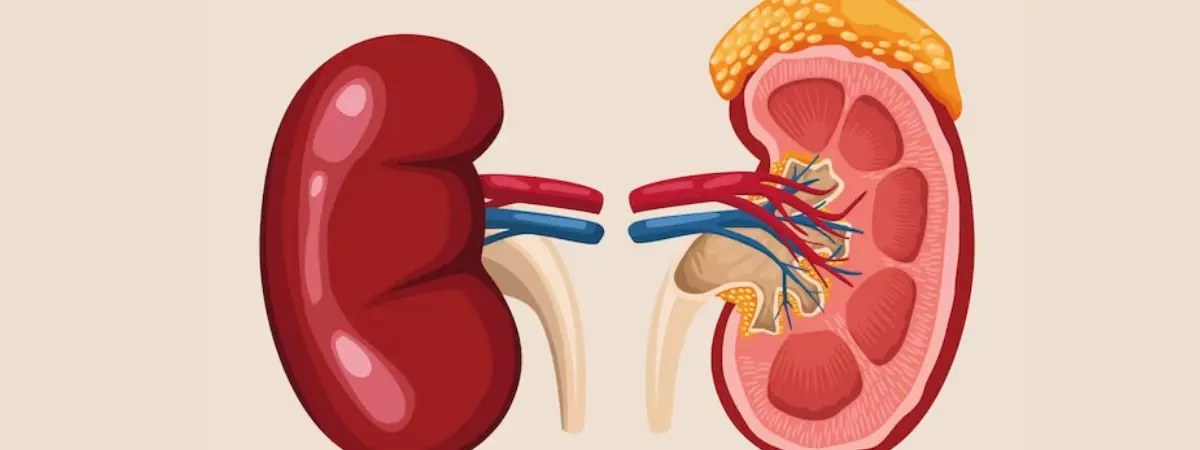Working Time
| Monday -Saturday | 11.00 am to 2.00 pm |
| 6.00 pm to 8.30 pm | |
| Sunday | 11.00 am to 2.00 pm |
| Monday -Saturday | 11.00 am to 2.00 pm |
| 6.00 pm to 8.30 pm | |
| Sunday | 11.00 am to 2.00 pm |

Adrenal insufficiency, also known as Addison's disease, is a rare but serious condition that occurs when the adrenal glands don't produce enough cortisol and, sometimes, aldosterone. These hormones are essential for regulating various bodily functions, including metabolism, immune response, and stress management.
Symptoms of adrenal insufficiency can vary widely and may include:
Fatigue: Persistent tiredness and lack of energy, even after rest.
Weight loss: Unintentional weight loss despite normal or increased appetite.
No appetite: Loss of appetite or a decrease in food intake.
Nagging cough: Chronic cough that doesn't go away, especially when lying down.
Ache while breathing: Pain or discomfort in the chest while breathing deeply.
Low blood pressure: Dizziness, lightheadedness, or fainting upon standing up.
These symptoms can be subtle and may develop gradually over time, making diagnosis challenging. However, if left untreated, adrenal insufficiency can lead to life-threatening complications, such as adrenal crisis, which requires immediate medical attention.
Causes of adrenal insufficiency can be categorized into primary and secondary forms. Primary adrenal insufficiency occurs when the adrenal glands themselves are damaged, often due to autoimmune diseases like Addison's disease or infections such as tuberculosis. Secondary adrenal insufficiency, on the other hand, results from a malfunction in the pituitary gland or hypothalamus, which disrupts the production of adrenocorticotropic hormone (ACTH), a hormone that stimulates the adrenal glands.
Diagnosis of adrenal insufficiency typically involves blood tests to measure cortisol and ACTH levels, as well as imaging studies like CT scans or MRI to assess the adrenal glands' structure and function. Treatment usually consists of hormone replacement therapy to replenish deficient cortisol and, if necessary, aldosterone levels.
Cortisol replacement therapy often involves oral corticosteroid medications, such as hydrocortisone or prednisone, taken in divided doses throughout the day to mimic the body's natural cortisol production. Patients may also require mineralocorticoid replacement therapy with medications like fludrocortisone to regulate salt and fluid balance in the body.
In addition to medication, lifestyle modifications are crucial for managing adrenal insufficiency. Patients should strive to maintain a balanced diet, avoid excessive stress, and carry an emergency injection of cortisol (e.g., hydrocortisone) for adrenal crisis situations. Regular follow-up appointments with an endocrinologist are essential to monitor hormone levels and adjust treatment as needed.
If you or a loved one are experiencing symptoms of adrenal insufficiency, don't delay seeking medical attention. Early diagnosis and treatment can help manage symptoms effectively and improve overall quality of life.
Call to Action:
Contact Dr.Kavya Jonnalagadda,best endocrinologist in Tirupati at Sree Charith hospitals specializing in hormone disorders like adrenal insufficiency. Don't let symptoms go untreated; schedule your consultation today with the best endocrinology doctor in Tirupati!
The Lowdown on Thyroid Slowdown: Understanding Hypothyroidism and Finding Expert Care

Living a Long and Fulfilling Life with Diabetes: A Journey of Hope

Unraveling the Signs: Symptoms of Uncontrolled Diabetes You Shouldn't Ignore

Battling the Bulge: Understanding Obesity and Seeking Expert Care
